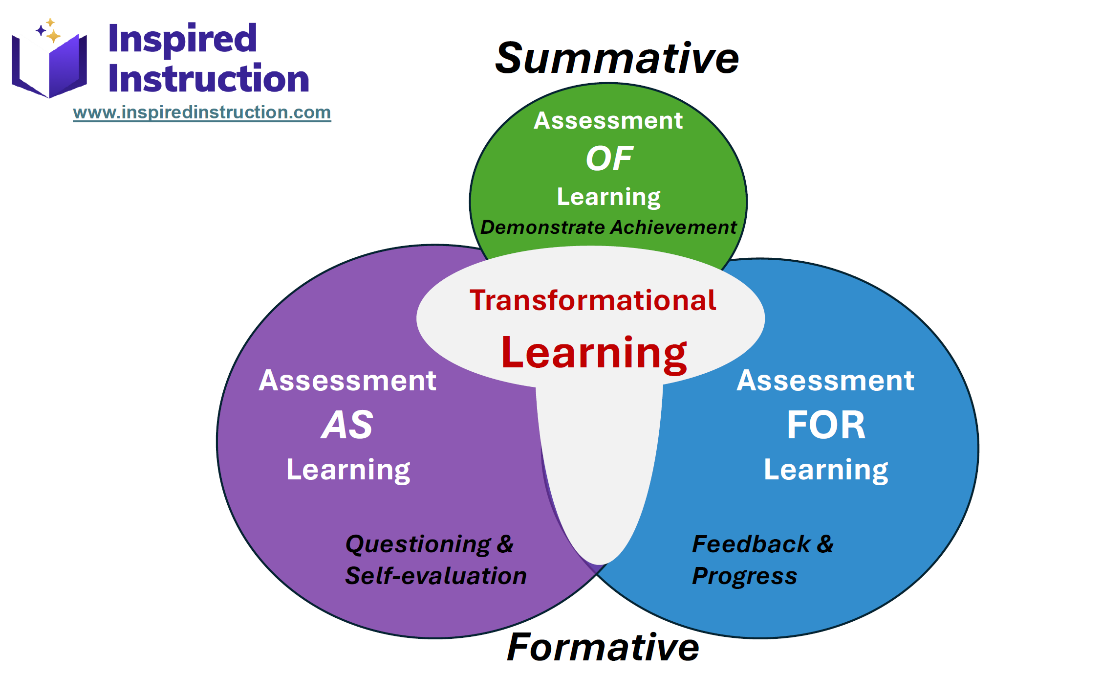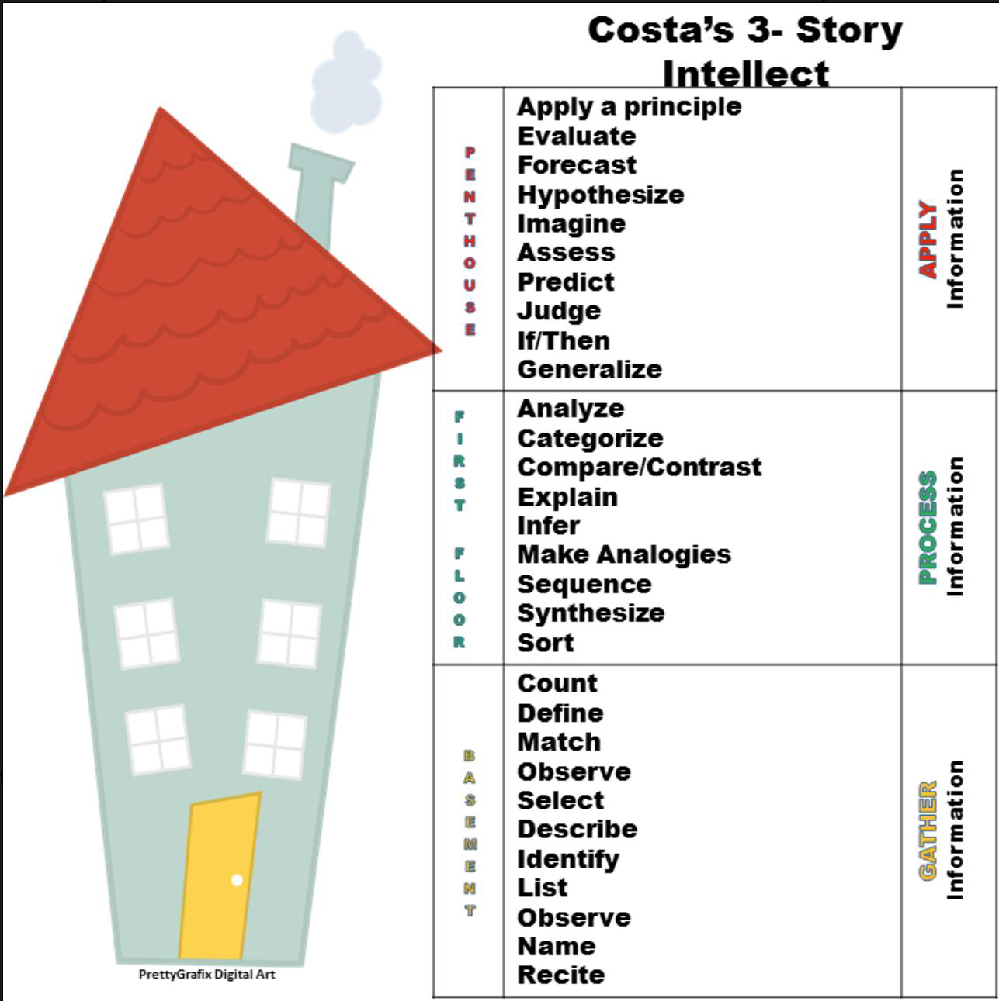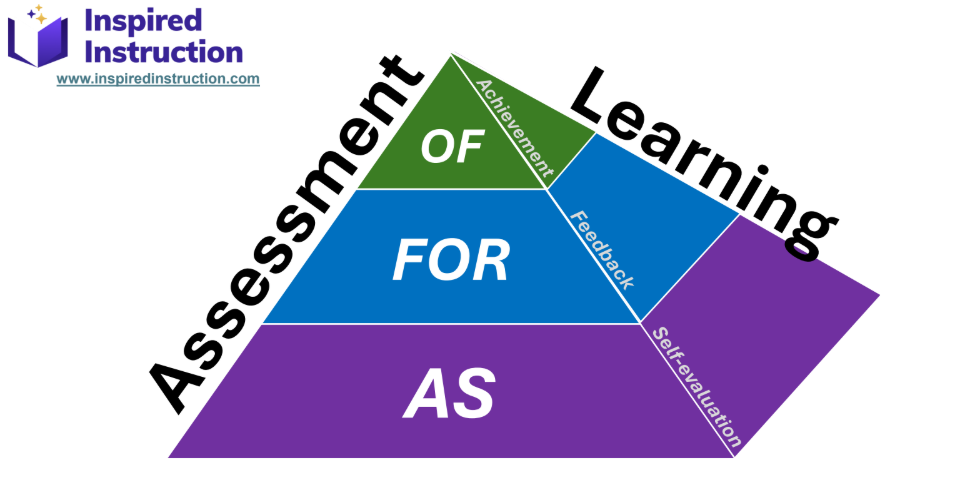Things to Ponder…
- What is assessment in the classroom?
- What makes an assessment effective?
- What are the components of an assessment?
- How often should we assess in the classroom?

Summative Assessment: Assessment OF Learning
Back in the day, we used words like test and quiz to refer to assessments. This was a time when summative assessment dominated the educational environment—the assessment OF learning used to evaluate achievement after the fact.
Summative assessment still has an important role to play in education; however, its days of fame and glory should be over.
Formative Assessment: Assessment FOR Learning
More recently, the benefits of formative assessment and feedback—assessment FOR learning—have become increasingly recognized. Formative assessment seeks to gauge progress and inform decisions about future actions by both the teacher and the student.
Key to the success of formative assessment is timely, actionable feedback to students.
Think of summative assessment as an autopsy, whereas formative assessment is an annual physical. Both provide valuable information—one after the fact, the other in time to influence and improve future outcomes.
Research is very clear about the significant positive impact of well-planned formative assessment and feedback in the instructional process. John Hattie, in discussing the “effect size” of various instructional strategies, lists formative assessment and feedback as significantly more powerful than most others.
Formative assessment strategies exist on a continuum—from written, scored quizzes with feedback to informal practices such as walking around the room, observing students’ work, and identifying what they can and cannot do.
Formative assessment is guided by three essential questions
- Where is the learner going?
- Where is the learner now?
- How does the learner get there?

Additionally, effective formative assessment incorporates four key classroom elements:
- Activate the student.
- Set a clear learning target.
- Elicit evidence of learning.
- Provide meaningful feedback.
Assessment AS Learning
At the most basic level, assessments are simply tasks or questions that probe one’s knowledge or skills about a particular topic.
When we break it all down, assessment is simply questioning. One of the most effective types of informal formative assessment is asking questions specifically designed to challenge and deepen students’ Levels of Understanding. I contend that our instructional design should center around just that—well-thought-out, scaffolded questions. These questions should drive instruction, probe for understanding, engage students, and deepen learning.
Yes—questioning. Effective leaders know that a teacher’s questioning plan can often be more informative than their lesson plan.
Let’s set aside Dr. Bloom for a moment and focus on Costa’s three levels of questioning. Take a week or so and chart your classroom questioning according to these three levels:

- Gathering
- Processing
- Applying
Do you see any patterns? Are your questions appropriately distributed across all levels, based on the depth of your learning targets? Are you posing high-level questions before establishing foundational knowledge through Gathering-type questions?
Look at your assessments—both formal and informal. Do you notice patterns in the types of questions you use? Does the level of questioning in your classroom—both formative and summative—match the level of questioning required on your state assessments?
Assessment IS Instruction
Ultimately, assessment IS instruction through well-designed, scaffolded questioning techniques. Questioning drives instruction. Questioning fosters engagement. Questioning identifies misconceptions. Questioning deepens understanding.
And the magic truly happens when students begin to formulate their own questions, testing and deepening their understanding. Over time, as the teacher gradually releases control of the “question asking” process, students learn to formulate meaningful questions that test, challenge, and expand their own understanding. This is a significant metacognition skill in the realms of critical and creative thinking and self-regulation, paving the way toward becoming a lifelong learner and a productive citizen.
So—what’s your Questioning Plan for today’s lesson?
Maybe it’s time for a formative assessment and questioning tune-up for your staff.
We know that teachers’ time is highly valuable. We know time is limited and your professional development budget is tight. Let Inspired Instruction’s Professional Development Specialists partner with you to improve classroom instruction with customized workshops and on-site instructional coaching.





